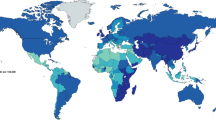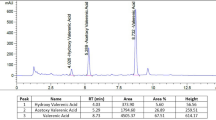Abstract
Purpose
We aimed to study the effect of obstructive sleep apnea (OSA) on cancer risk.
Methods
We searched PubMed, Embase, and Cochrane databases for relevant studies. The qualities of included studies were assessed using Newcastle–Ottawa Scale (NOS). Unadjusted and adjusted analyses were performed. We also conducted subgroup analyses stratified by gender, severity of OSA, study design, and cancer type.
Results
After literatures search, 18 studies were included in the present study. In the unadjusted analysis, we discovered an increased cancer risk in patients with OSA with a pooled relative risk (RR) in the OSA group of 1.49 (95% confidence interval (CI): 1.32–1.69, I2 = 32%, P = 0.15). In adjusted analysis, OSA correlated with cancer risk (RR: 1.36, 95% CI: 1.18–1.56, I2 = 54%, P < 0.01). In subgroup stratified by gender and OSA severity, OSA statistically with cancer risk in females (RR: 1.27, 95% CI: 1.06–1.51) and moderate to severe OSA groups (RR: 2.62, 95% CI: 1.64; 4.19). In subgroup stratified by study design, a trend toward statistically significant differences was observed in prospective studies (RR: 1.21, 95% CI: 0.99–1.48) and cross-sectional studies (RR: 1.81, 95% CI: 0.96–3.41). Patients with OSA in the retrospective study group had a statistically higher chance of developing cancer (RR: 1.41, 95% CI: 1.11–1.79). When stratified by cancer group, statistically significant differences was observed in many types of cancer (breast cancer: RR: 1.32, 95% CI: 1.03–1.70; central nervous system cancer: RR: 1.71, 95% CI: 1.06–2.75; kidney cancer: RR: 1.81, 95% CI: 1.20–2.74; liver cancer: RR: 1.19, 95% CI: 1.10–1.29; and pancreatic cancer: RR: 1.23, 95% CI: 1.14–1.33).
Conclusions
This systematic review and meta-analysis suggests that obstructive sleep apnea may increase risk of cancer.




Similar content being viewed by others
Data availability
All data for this systematic review and meta-analysis are fully available without restriction.
References
Lin J, Suurna M (2018) Sleep apnea and sleep-disordered breathing. Otolaryngol Clin North Am 51(4):827–33. https://doi.org/10.1016/j.otc.2018.03.009
Garvey JF, Pengo MF, Drakatos P, Kent BD (2015) Epidemiological aspects of obstructive sleep apnea. J Thoracic Dis 7(5):920–9. https://doi.org/10.3978/j.issn.2072-1439.2015.04.52
Wang X, Ouyang Y, Wang Z, Zhao G, Liu L, Bi Y (2013) Obstructive sleep apnea and risk of cardiovascular disease and all-cause mortality: a meta-analysis of prospective cohort studies. Int J Cardiol 169(3):207–14. https://doi.org/10.1016/j.ijcard.2013.08.088
Wang X, Bi Y, Zhang Q, Pan F (2013) Obstructive sleep apnoea and the risk of type 2 diabetes: a meta-analysis of prospective cohort studies. Respirology (Carlton, Vic) 18(1):140–6. https://doi.org/10.1111/j.1440-1843.2012.02267.x
Bucks RS, Olaithe M, Eastwood P (2013) Neurocognitive function in obstructive sleep apnoea: a meta-review. Respirology (Carlton, Vic) 18(1):61–70. https://doi.org/10.1111/j.1440-1843.2012.02255.x
Martínez-García M, Campos-Rodriguez F, Barbé F (2016) Cancer and OSA: Current Evidence From Human Studies. Chest 150(2):451–63. https://doi.org/10.1016/j.chest.2016.04.029
Toffoli S, Michiels C (2008) Intermittent hypoxia is a key regulator of cancer cell and endothelial cell interplay in tumours. Febs J 275(12):2991–3002. https://doi.org/10.1111/j.1742-4658.2008.06454.x
Sebestyén A, Kopper L, Dankó T, Tímár J (2021) Hypoxia signaling in cancer: from basics to clinical practice. Pathol Oncol Res : POR 27:1609802. https://doi.org/10.3389/pore.2021.1609802
Marrone O, Bonsignore MR (2020) Obstructive sleep apnea and cancer: a complex relationship. Curr Opin Pulm Med 26(6):657–67. https://doi.org/10.1097/mcp.0000000000000729
PalamanerSubashShantha G, Kumar AA, Cheskin LJ, Pancholy SB (2015) Association between sleep-disordered breathing, obstructive sleep apnea, and cancer incidence: a systematic review and meta-analysis. Sleep Med 16(10):1289–94. https://doi.org/10.1016/j.sleep.2015.04.014
Zhang XB, Peng LH, Lyu Z, Jiang XT, Du YP 2017 Obstructive sleep apnoea and the incidence and mortality of cancer: a meta-analysis. Eur J Cancer Care 26(2). https://doi.org/10.1111/ecc.12427
Cohen JM, Li YT, Wu S, Han J, Qureshi AA, Cho E (2015) Sleep duration and sleep-disordered breathing and the risk of melanoma among US women and men. Int J Dermatol 54(11):e492-5. https://doi.org/10.1111/ijd.12904
Fang HF, Miao NF, Chen CD, Sithole T, Chung MH (2015) Risk of cancer in patients with insomnia, parasomnia, and obstructive sleep apnea: a nationwide nested case-control study. J Cancer 6(11):1140–7. https://doi.org/10.7150/jca.12490
Gozal D, Ham SA, Mokhlesi B (2016) Sleep apnea and cancer: analysis of a nationwide population sample. Sleep 39(8):1493–500. https://doi.org/10.5665/sleep.6004
Lee S, Kim BG, Kim JW, Lee KL, Koo DL, Nam H et al (2017) Obstructive sleep apnea is associated with an increased risk of colorectal neoplasia. Gastrointest Endosc 85(3):568-731.1. https://doi.org/10.1016/j.gie.2016.07.061
Sillah A, Watson NF, Schwartz SM, Gozal D, Phipps AI (2018) Sleep apnea and subsequent cancer incidence. Cancer Causes Control : CCC 29(10):987–94. https://doi.org/10.1007/s10552-018-1073-5
Yunus FM, Khan S, Mitra DK, Mistry SK, Afsana K, Rahman M (2018) Relationship of sleep pattern and snoring with chronic disease: findings from a nationwide population-based survey. Sleep Health 4(1):40–8. https://doi.org/10.1016/j.sleh.2017.10.003
Brenner R, Kivity S, Peker M, Reinhorn D, Keinan-Boker L, Silverman B et al (2019) Increased risk for cancer in young patients with severe obstructive sleep apnea. Respiration; Int Rev Thoracic Dis 97(1):15–23. https://doi.org/10.1159/000486577
Choi JH, Lee JY, Han KD, Lim YC, Cho JH (2019) Association between obstructive sleep apnoea and breast cancer: The Korean National Health Insurance Service Data 2007–2014. Sci Rep 9(1):19044. https://doi.org/10.1038/s41598-019-55551-7
Polonis K, Sompalli S, Becari C, Xie J, Covassin N, Schulte PJ, et al 2019 Telomere length and risk of major adverse cardiac events and cancer in obstructive sleep apnea patients. Cells 8(5). https://doi.org/10.3390/cells8050381
Seijo LM, Pérez-Warnisher MT, Giraldo-Cadavid LF, Oliveros H, Cabezas E, Troncoso MF et al (2019) Obstructive sleep apnea and nocturnal hypoxemia are associated with an increased risk of lung cancer. Sleep Med 63:41–5. https://doi.org/10.1016/j.sleep.2019.05.011
Sillah A, Watson NF, Gozal D, Phipps AI (2019) Obstructive sleep apnea severity and subsequent risk for cancer incidence. Prev Med Rep 15:100886. https://doi.org/10.1016/j.pmedr.2019.100886
Chen CY, Hu JM, Shen CJ, Chou YC, Tian YF, Chen YC et al (2020) Increased incidence of colorectal cancer with obstructive sleep apnea: a nationwide population-based cohort study. Sleep Med 66:15–20. https://doi.org/10.1016/j.sleep.2019.02.016
Justeau G, Gervès-Pinquié C, Le Vaillant M, Trzepizur W, Meslier N, Goupil F et al (2020) Association between nocturnal hypoxemia and cancer incidence in patients investigated for OSA: data from a large multicenter French cohort. Chest 158(6):2610–20. https://doi.org/10.1016/j.chest.2020.06.055
Stroup DF, Berlin JA, Morton SC, Olkin I, Williamson GD, Rennie D, et al 2000 Meta-analysis of observational studies in epidemiology: a proposal for reporting. Meta-analysis Of Observational Studies in Epidemiology (MOOSE) group. Jama 283(15):2008–12. https://doi.org/10.1001/jama.283.15.2008
Stang A (2010) Critical evaluation of the Newcastle-Ottawa scale for the assessment of the quality of nonrandomized studies in meta-analyses. Eur J Epidemiol 25(9):603–5. https://doi.org/10.1007/s10654-010-9491-z
Campos-Rodriguez F, Martinez-Garcia MA, Martinez M, Duran-Cantolla J, Peña Mde L, Masdeu MJ et al (2013) Association between obstructive sleep apnea and cancer incidence in a large multicenter Spanish cohort. Am J Respir Crit Care Med 187(1):99–105. https://doi.org/10.1164/rccm.201209-1671OC
Chang WP, Liu ME, Chang WC, Yang AC, Ku YC, Pai JT et al (2014) Sleep apnea and the subsequent risk of breast cancer in women: a nationwide population-based cohort study. Sleep Med 15(9):1016–20. https://doi.org/10.1016/j.sleep.2014.05.026
Chen JC, Hwang JH (2014) Sleep apnea increased incidence of primary central nervous system cancers: a nationwide cohort study. Sleep Med 15(7):749–54. https://doi.org/10.1016/j.sleep.2013.11.782
Chen P, Wang C, Song Q, Chen T, Jiang J, Zhang X et al (2019) Impacts of sleep duration and snoring on the risk of esophageal squamous cell carcinoma. J Cancer 10(9):1968–74. https://doi.org/10.7150/jca.30172
Jara SM, Phipps AI, Maynard C, Weaver EM (2020) The association of sleep apnea and cancer in veterans. Otolaryngol--Ogyhead Neck Surg : Off J Am Academy Otolaryngology-Head Neck Surg 162(4):581–8. https://doi.org/10.1177/0194599819900487
Kendzerska T, Leung RS, Hawker G, Tomlinson G, Gershon AS (2014) Obstructive sleep apnea and the prevalence and incidence of cancer. CMAJ : Can Med Assoc J = J De L’association Medicale Canadienne 186(13):985–92. https://doi.org/10.1503/cmaj.140238
Marshall NS, Wong KK, Cullen SR, Knuiman MW, Grunstein RR (2014) Sleep apnea and 20-year follow-up for all-cause mortality, stroke, and cancer incidence and mortality in the Busselton Health Study cohort. J Clin Sleep Med : Jcsm : Off Publ Am Acad Sleep Med 10(4):355–62. https://doi.org/10.5664/jcsm.3600
Zhang X, Giovannucci EL, Wu K, Gao X, Hu F, Ogino S et al (2013) Associations of self-reported sleep duration and snoring with colorectal cancer risk in men and women. Sleep 36(5):681–8. https://doi.org/10.5665/sleep.2626
Gozal D, Almendros I, Phipps AI, Campos-Rodriguez F, Martínez-García MA, Farré R (2020) Sleep apnoea Adverse effects on cancer: true, false, or too many confounders? Int J Mol Sci 21(22). https://doi.org/10.3390/ijms21228779
Almendros I, Gozal D (2018) Intermittent hypoxia and cancer: undesirable bed partners? Respir Physiol Neurobiol 256:79–86. https://doi.org/10.1016/j.resp.2017.08.008
Martinez CA, Kerr B, Jin C, Cistulli PA, Cook KM (2019) Obstructive sleep apnea activates HIF-1 in a hypoxia dose-dependent manner in HCT116 colorectal carcinoma cells. Int J Mol Sci 20(2). https://doi.org/10.3390/ijms20020445
Almendros I, Montserrat JM, Ramírez J, Torres M, Duran-Cantolla J, Navajas D et al (2012) Intermittent hypoxia enhances cancer progression in a mouse model of sleep apnoea. Eur Respir J 39(1):215–7. https://doi.org/10.1183/09031936.00185110
Li L, Ren F, Qi C, Xu L, Fang Y, Liang M et al (2018) Intermittent hypoxia promotes melanoma lung metastasis via oxidative stress and inflammation responses in a mouse model of obstructive sleep apnea. Respir Res 19(1):28. https://doi.org/10.1186/s12931-018-0727-x
Almendros I, Wang Y, Becker L, Lennon FE, Zheng J, Coats BR et al (2014) Intermittent hypoxia-induced changes in tumor-associated macrophages and tumor malignancy in a mouse model of sleep apnea. Am J Respir Crit Care Med 189(5):593–601. https://doi.org/10.1164/rccm.201310-1830OC
Vilaseca A, Campillo N, Torres M, Musquera M, Gozal D, Montserrat JM et al (2017) Intermittent hypoxia increases kidney tumor vascularization in a murine model of sleep apnea. PloS One 12(6):e0179444. https://doi.org/10.1371/journal.pone.0179444
Yoon DW, Kim YS, Hwang S, Khalmuratova R, Lee M, Kim JH et al (2019) Intermittent hypoxia promotes carcinogenesis in azoxymethane and dextran sodium sulfate-induced colon cancer model. Mol Carcinog 58(5):654–65. https://doi.org/10.1002/mc.22957
Zheng J, Almendros I, Wang Y, Zhang SX, Carreras A, Qiao Z et al (2015) Reduced NADPH oxidase type 2 activity mediates sleep fragmentation-induced effects on TC1 tumors in mice. Oncoimmunology 4(2):e976057. https://doi.org/10.4161/2162402x.2014.976057
Bonsignore MR, Baiamonte P, Mazzuca E, Castrogiovanni A, Marrone O (2019) Obstructive sleep apnea and comorbidities: a dangerous liaison. Multidiscip Respir Med 14:8. https://doi.org/10.1186/s40248-019-0172-9
Ali M, Kowkuntla S, Delloro DJ, Galambos C, Hathi D, Janz S et al (2019) Chronic intermittent hypoxia enhances disease progression in myeloma-resistant mice. Am J Physiol Regul Integr Comp Physiol 316(5):R678-r86. https://doi.org/10.1152/ajpregu.00388.2018
Marhuenda E, Campillo N, Gabasa M, Martínez-García MA, Campos-Rodríguez F, Gozal D et al (2019) Effects of sustained and intermittent hypoxia on human lung cancer cells. Am J Respir Cell Mol Biol 61(4):540–4. https://doi.org/10.1165/rcmb.2018-0412LE
Justeau G, Bailly S, Gervès-Pinquié C, Trzepizur W, Meslier N, Goupil F et al (2021) Cancer risk in patients with sleep apnoea following adherent 5-year CPAP therapy. Eur Respir J. https://doi.org/10.1183/13993003.01935-2021
Funding
This work was supported by China National Science Foundation (Grant No. 81871893 and No. 82022048) and Key Project of Guangzhou Scientific Research Project (Grant No. 201804020030).
Author information
Authors and Affiliations
Contributions
All authors directly participated in the study and have reviewed and approved the final manuscript.
Corresponding authors
Ethics declarations
Ethical approval
This article does not contain any studies with human participants or animals performed by any of the authors.
Conflict of interest
The authors declare no competing interests.
Role of the funder/sponsor
The funders and fund sources had no role in design and conduct of the study; collection, management, analysis, and interpretation of the data; preparation, review, or approval of the manuscript; and decision to submit the manuscript for publication.
Additional information
Publisher's note
Springer Nature remains neutral with regard to jurisdictional claims in published maps and institutional affiliations.
Supplementary Information
Below is the link to the electronic supplementary material.
Rights and permissions
Springer Nature or its licensor holds exclusive rights to this article under a publishing agreement with the author(s) or other rightsholder(s); author self-archiving of the accepted manuscript version of this article is solely governed by the terms of such publishing agreement and applicable law.
About this article
Cite this article
Wu, D., Zhao, Z., Chen, C. et al. Impact of obstructive sleep apnea on cancer risk: a systematic review and meta-analysis. Sleep Breath 27, 843–852 (2023). https://doi.org/10.1007/s11325-022-02695-y
Received:
Revised:
Accepted:
Published:
Issue Date:
DOI: https://doi.org/10.1007/s11325-022-02695-y




